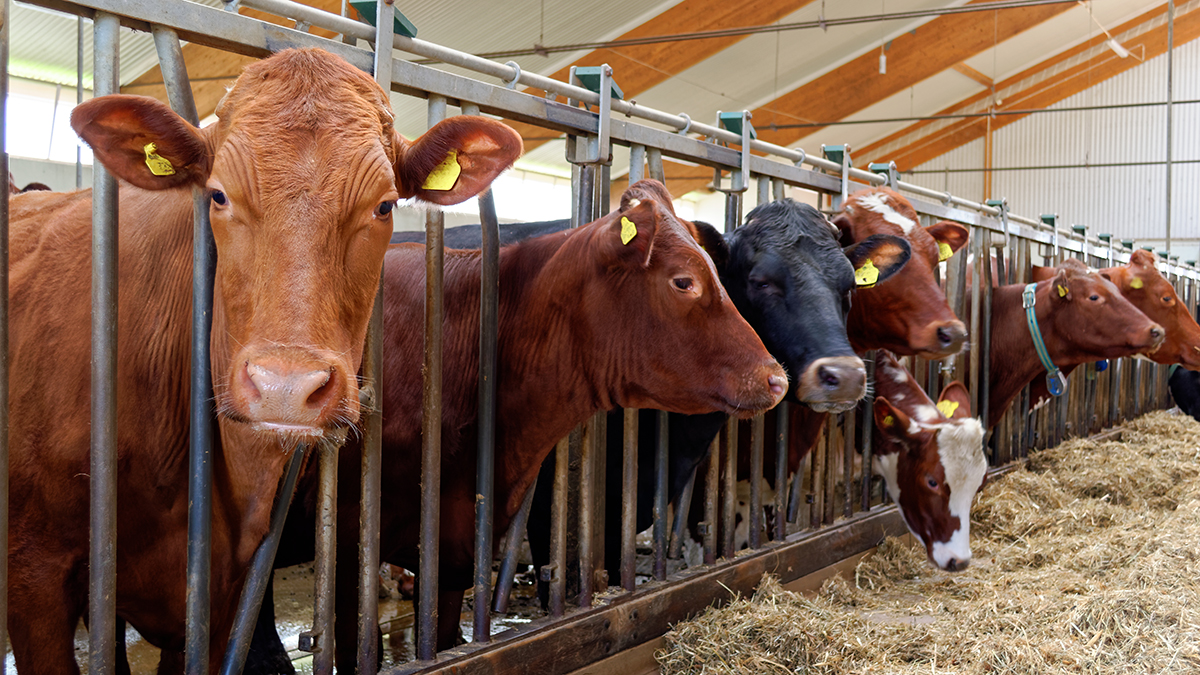Humans share the planet with a vast array of animal and plant life. We are instructed to care for the world that we live in (Genesis 2:15) but we have not cared for it well, and we all know it. For more than half a century, secular environmentalists have been raising their voices in protest. In more recent decades, concerns over our mistreatment of animals, particularly the animals that we eat, have increasingly been expressed.
Christian authors have also voiced concern over the negative impact of human activity upon the environment and, more recently, regarding the animal question.
Where have Seventh-day Adventists stood on these two closely related issues? We have shown some sympathy on the first issue but we’ve been practically silent on the disturbing problem of society’s systemic mistreatment of livestock.
Why the silence? Perhaps we regard it as a secular issue: “we have been called to minister to people; let others watch out for the animals!”
The truth is, God has called us to look after the lower creatures. The original mandate given to humankind was to “have dominion over the fish of the sea, over the birds of the air, and over every living thing that moves on the earth” (Genesis 1:28). Let us consider carefully what this means.
‘And let them have dominion . . .’
Dominion—it’s not a commonly used word today. If used at all outside of Christian circles, it is likely to bear the ugly connotation of domination.
Yet, in the beginning, the idea of dominion was positive. God Himself gave the first man and woman dominion over every living creature. It is safe to assume this was to be a benign and gentle rulership—a mandate to maintain the order, harmony and peace of an Edenic paradise.
Nor was it a dominion over each other. Rulership over other human beings developed progressively following the Fall. It was all too frequently practised as a harsh and dominating ascendancy. Happily times have changed and most of us, in those countries that enjoy high levels of freedom, live our lives with little awareness of being under any kind of dominion.
Much less do we think of ourselves today as exercising dominion. Usually, we associate the idea of dominion solely with inter-human relationships. We have largely forgotten that our Maker made us to have dominion over the animal kingdom. That original mandate has never been revoked (Psalm 8:6-8). We are still to rule over the animals. And, as we shall see, we are to do so in the manner of the One who rules over us.
God as Ruler
In giving men and women rulership over the creatures, God did not relinquish His own sovereignty. He is still King of all the earth (Psalm 47:2,7). “The earth is the LORD’s” (24:1; 89:11); it is full of His possessions (104:24; 95:3-5). God is King because He created the world and all that is in it. But what kind of king is He?
As King, God rules in righteousness, hating wickedness (Psalm 45:6,7). In practical terms this means that He provides and protects. He provides a dwelling place for His human and non-human creatures (84:3-4a), a refuge for the needy and oppressed (48:2b-3; 9:9; 99:4), food for the hungry (145:15; 104:10-14; Matthew 6:26) and satisfaction of the natural desires of “every living thing” (Psalm 145:16).Our divine King hears our cries for help (5:2; 20:9; 145:19), works salvation in all the earth (74:12), is quick to satisfy with His mercies (90:14), none are exempt from the Creator’s fatherly care, and He preserves “man and beast” (36:6).
This is dominion modelled by our Creator, whose “tender mercies are over all his works” (145:9).
There are clear indications in the Bible that our own exercise of dominion (whether over people or animals) should mirror what is seen in the kingly rule of God. Let’s focus on just three such indications.
Modelling God’s dominion
First, we are to mirror the kingly rule of God simply because we are made in His image. “Dominion” and “image” are closely linked in the biblical Creation account: “Let us make man in our image, according to our likeness; let them have dominion . . .” (Gen 1:26). This appears to mean that being in the image of God involves the privilege and practice of dominion. It means to reflect in our words and works the character of our Creator, our King. We are to rule as He rules.
Second, we are to forgive others as God has forgiven us. This, too, is practising dominion, because indebtedness brings bondage (Proverbs 22:7): we hold sway over those who owe us money. To forgive our debtors is to extend mercy to those who are in our power, just as God has done for us (Matthew 18:23-35). Showing forgiveness is showing mercy, and is another example of modelling God’s dominion. [pullquote]
But it is the biblical picture of shepherd that most clearly portrays the connection between God’s manner of rulership and our own. A shepherd is a leader, a ruler of sorts (2 Samuel 5:2). This makes shepherding a form of dominion. God characterised His people as sheep, and He as their Shepherd (Psalms 78:52; 79:13; 80:1; Ezekiel 34:31). In recognition of this relationship, the rulers of Israel were required to shepherd God’s people after the manner of the divine Shepherd (Psalms 80:1-3; 79:13).
The fearful results of the rulers’ failure to do this are portrayed in a striking prophecy given to the prophet Ezekiel.
Ezekiel 34: Two contrasting forms of dominion
In this prophecy, the harsh rulers of Israel were described as shepherds who used the animals for their own benefit—using their wool and eating their meat—rather than feeding the flocks. They neither strengthened the weak, nor healed those who were sick, nor bound up the broken, nor sought those who were lost. Rather, they ruled God’s sheep with force and cruelty, satisfying their own needs while neglecting the needs of those whom God had placed under their care (Ezekiel 34:2-5,18,19).
Four times the unfaithful shepherds were charged with eating the sheep instead of feeding them (vv 2, 3, 8, 10). And four times it is promised that the future Davidic Shepherd would, by contrast, feed the flock (vv 13, 14, 15, 23). Godly dominion, it is seen, is not self-serving.
Indeed, godly dominion is self-sacrificing, for Jesus, the “Good Shepherd”, would lay down His life for the sheep (John 10:14, 15). The sheep do not sacrifice their lives for the Shepherd. Nowhere is the Good Shepherd ever said to take the life of even one of His flock. Those fortunate sheep who have the gentle Saviour as their Shepherd have no reason to fear that He will one day change from being their protector to being their predator.
Dominion today
What implications does all this have for us today? Some are obvious, if uncomfortable. If God is not a predator, should we be? If the gentle Shepherd never takes the life of His animals, should we? If mercy is the predominant feature of God’s way of dominion, should it not be ours?
Of course, many of us have little direct contact with animals, apart from our cosseted pets. It is at the dinner table, however, that we exercise dominion. There we will be either predators or protectors. There we will either proclaim our right to devour those whom God placed in our care; or we may demonstrate our duty to protect those creatures for whom the gentle Shepherd has such tender regard. This is dominion. It is dominion at a distance but dominion nevertheless.
Many today evaluate meat in the diet on the basis of its positive or negative effects on health. But Scripture commands us to eat and drink to the glory of God (1 Corinthians 10:31). Whatever we do to God’s glory will be good for us (Ecclesiastes 8:5). We do not need to anxiously await the latest nutritional discoveries that will validate the health benefits of vegetarianism. Let us simply eat to the glory of God.
This requires we adopt a diet of mercy. Yes, after the Flood God permitted a flesh diet. But will you not have mercy? You may be convinced there are some health benefits to eating grass-fed beef and free-range chickens. But will you not have mercy? Mercy triumphs over judgement (James 2:13).
Let us demonstrate to those around us—those both in and outside of the Church (2 Corinthians 2:15)—that we not only believe in mercy, we practise it. Let our exercise of dominion reflect that of our King, so that when He comes to claim His own, we may have reason to know that His mercy towards us has produced the fruit of mercy in us.
Bernard White is teaching English and Theology at Sahmyook University in Seoul, Korea, while completing a PhD in Systematic Theology through Avondale College.






